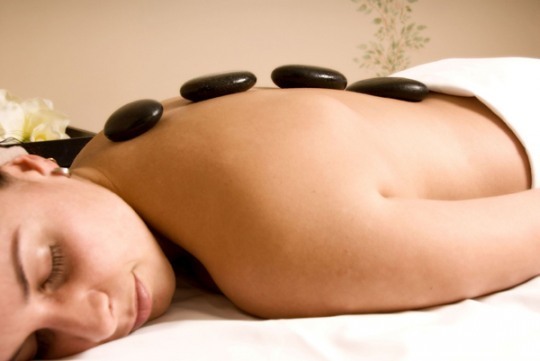In South Korea, the image of massage services has long been negative, viewed in relation to illicit sexual service providers. Either that, or massages were seen as the prerogative of the elite at posh and luxurious spas.
Now, with growing interest in health services amid increasingly sedentary lifestyles and the consequent branching out of massage to become more affordable and accessible, it has become a common way to relieve stress and pain for many Korean urbanites.
In Seoul, you can easily find massage shops on the streets providing diverse services ranging from acupressure and foot to aroma and Thai massage.
Acupressure uses fingers, palms, elbows or feet to apply pressure along points on the body’s meridians to soothe the strained shoulders, neck or waist. Foot massage stimulates acupuncture points on the foot believed to be connected to body organs to improve circulation, stimulate muscles, reduce tension and ease pain. Thai massage is an ancient Southeast Asian healing system combining acupressure and assisted yoga postures to relieve chronic lower back pain. Sports massage involves the manipulation of soft tissue to especially benefit those engaged in regular physical activity.
 |
123rf |
With increasing demand for relieving stress, a new trend has also spread among some Korean companies, which began to hire massage therapists at the office as part of corporate welfare for the employees.
Korean offices, including LG Display, Kakao, Woowa Brothers, Coway and TmaxSoft, have massage therapists on hand who can help employees relax when they are feeling particularly tense or stressed.
One LG Display official noted, “We feel strained neck or shoulders when sitting at a computer for a long time. Then we can make a reservation with a therapist to have massage services at work. This surely raises satisfaction for employees at work as it relieves their stress and tension.”
Despite such growing use of massage services in Korea, not many are aware that most massage therapists operate illegally here. Under the current law, only the blind are legitimately recognized as massage therapists, in order to protect the livelihoods of those with visual impairments.
The blind can become massage therapists after two years of training at specialized schools. Under the medical law, an employer of a massage shop that does not hire blind therapists can be sentenced to up to three years in prison or 30 million won ($26,800) in fines.
In reality however, it is nigh impossible to regulate all the massage shops here. The number of massage shops is estimated at around 50,000, with some 300,000 people working in the industry.
“Because massage services are almost the only way for the blind’s livelihood, we take this issue very seriously. We repeatedly ask the police to strengthen the crackdown,” said Ryu Jae-ho, secretary-general at the Korea Massage Association, which represents blind massage therapists.
“Still, a crackdown does not actually take place because the government doesn’t seem to take this issue seriously,” he added.
On the other hand, a chairman of the association that represents non-blind massage therapists with more than 50,000 members commented that the law should be revised to enable all massage therapists -- whether they are blind or not -- to legally work.
“The current medical law makes tens of thousands of non-blind massage therapists criminals. This doesn’t seem right,” said Kim Sang-kyu.
In 2006, two blind massage therapists jumped to their death in the Han River in protest at the Constitutional Court’s ruling that giving qualifications only to the blind is unconstitutional. Sometime later, the court reversed the decision and, to date, only the blind can legally operate as massage therapists.
The prolonged controversy has also faced backlash on eradicating the negative perception of massage parlors habitually being linked to illicit sexual services.
As more modernized and franchised massage shops operate regardless of the current legal status, the blind that had been working at the smaller massage parlors fail to benefit from the mushrooming massage industry.
In short, legitimate services tend to remain in the dark, while technically illegal places flourish.
“This is a very sensitive issue and the government should continue to find ways to help both the blind and non-blind massage therapists,” said Sung Ki-seok, a professor at Kyung Hee University’s graduate school of physical education.
“Revising the law to make all therapists legal and then collecting donation funds from them to help the blind, or obliging the shop owners to hire the blind, can be an option,” he added.
An official from the Ministry of Health & Welfare commented, “Although the problem cannot be addressed overnight, we will continue to work with regional governments and police to protect the livelihoods of blind massage therapists.”
By Shin Ji-hye (
shinjh@heraldcorp.com)







![[Lee Byung-jong] The perils of political leadership](http://res.heraldm.com/phpwas/restmb_idxmake.php?idx=644&simg=/content/image/2024/12/19/20241219050082_0.jpg)
